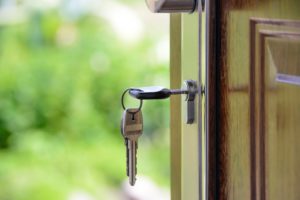Understanding Bankruptcy & Mortgages in North Carolina

If you are struggling under the weight of crippling debt, bankruptcy might be the right option for you to clear your financial obligations and start again with a clean slate. Furthermore, if you are considering filing for Chapter 7 bankruptcy and you own a home, there are some important considerations to make before moving forward. Not properly protecting your assets could leave your property – and even your home – vulnerable to being sold to pay off creditors.
Sasser Law Firm can guide you through this process. Our board-certified bankruptcy attorneys have experience with even the most difficult bankruptcy cases. We are prepared to fight through appeals if necessary.
Our bankruptcy attorneys have extensive experience helping clients facing emergencies like foreclosure or repossession get back on the right track. Contact us for a free consultation now. There is no obligation to move forward with our firm until you are ready.
How a Lawyer Can Help With Your Home and Mortgage During Bankruptcy
Bankruptcy is a somewhat complex legal process. Owning a home can often make the situation more complicated. First, you must pass a means test for median family income to presumptively qualify for a Chapter 7 discharge. This means that you will not be allowed to file for bankruptcy if you are deemed financially able to pay back your debts. You also have more limited options if you’ve filed for bankruptcy in the past.
The law considers the assets of a Chapter 7 debtor to be usable for paying debts. North Carolina law exempts some of these assets from being sold by the Chapter 7 trustee, including a portion of the value of a motor vehicle, an amount of clothing and household goods, retirement accounts, certain types of legal compensation, alimony and child support, and certain other personal property, as well as a portion of the value of your home, if you use it as a personal residence. If a debtor moved to North Carolina less than two years prior to the filing of the bankruptcy case then it may be that the exemptions of another state or those found in the bankruptcy code will be applicable instead. Although many people are concerned about what bankruptcy will mean for their future, it does not mean that you will lose all your property if you protect it correctly.
An attorney like the knowledgeable bankruptcy lawyers at Sasser Law Firm can help you get your financial affairs in order, which is essential before going into bankruptcy proceedings. Property that is not covered under the state exemptions may be considered assets and subject to sale. If you do it properly and timely, however, your assets, as well as your home, can be protected.
Can Any Form of Bankruptcy Allow You to Keep Your Home in North Carolina?
When considering bankruptcy, you are likely concerned about whether you’ll be able to keep your home. Thankfully, North Carolina law allows you to protect your home from foreclosure.
Chapter 7 bankruptcy will allow you to keep your home if your equity is below the following limits:
- North Carolina law provides a homestead exemption, which exempts $35,000 of equity in a personal residence, or $60,000 if you are 65 years of age or older, your spouse has died, and certain other conditions are met.
- Married couples are able to double the $35,000 exemption, to protect $70,000 of equity. Bankruptcy filers in North Carolina are unable to use the bankruptcy code exemptions if they have lived in North Carolina for at least 2 years.
- North Carolina has a Wildcard provision, however, which allows a homeowner to use any unused portion of their homestead exemption to protect other property, up to $5,000.
- Tenancy by Entirety permits an exemption in real property owned and titled by spouses so long as the spouses do not owe joint, unsecured debt. Tenancy by Entirety is not limited to residences. Medical bills are generally considered to be joint obligations.
For example: This means that if your mortgage debt on a $200,000 home is $165,000 (or $130,000 for a married couple), your equity would be $35,000 ($70,000 for a married couple), and would be covered by the homestead exemption. In this example, your home would be protected. Ideally, you will be current or close to current on your mortgage payments and other debts like homeowner’s insurance and property taxes in order to file for Chapter 7 bankruptcy. The reason is that Chapter 7 will not help a debtor with mortgage delinquency or property tax delinquency.
Chapter 13 bankruptcy may be a better option if you aren’t able to catch up on your payments. This form of bankruptcy provides a repayment plan, which would allow you to make missed payments over time along with your normal monthly payments. Also, if you have non-exempt equity in the property you are still permitted to retain that in Chapter 13.
Secured Debt vs. Liens
What You Need to Know When Filing Chapter 7 Bankruptcy
A secured debt allows a creditor to take a borrower’s property if the debt is not paid. Credit cards and utility bills are unsecured debt unless the creditor obtains a judgment against the debtor in which case that judgment may create a lien on real property. Mortgage loans are secured debt. If you fail to pay your mortgage, a creditor can foreclose on your house.
A lien allows the creditor to foreclose or repossess on the collateral if the borrower defaults on the loan.
A lien may also give a lienholder the right to be paid before other creditors in bankruptcy. If a trustee in a Chapter 7 case sells property with a lien on it, they may have to pay a secured creditor before they pay other creditors. If there are multiple liens on a property, the earliest lien is paid first.
Do I Need to Pay My Mortgage If I File Chapter 7 Bankruptcy?
Yes, you still need to make your mortgage payments if you file for bankruptcy. Ideally, you would be current or close to current on your mortgage before filing for Chapter 7 bankruptcy.
If you’re not current on your payments but are also not too far behind, you may be able to catch up on the back payments while making your regular payments, and still file Chapter 7. Chapter 13 bankruptcy takes longer, but it may work better for you if you need more time to catch up.
Bankruptcy can relieve you of the debt on your house, but not of a mortgage lien that allows the creditor to foreclose. If you file for bankruptcy and do not make your mortgage payments, you may still lose your home.
Can I Get a Mortgage After Bankruptcy?
Yes. Bankruptcy does not have to hold you back for a long time. In most cases, you will need to wait two years after your bankruptcy discharges before you can get a conventional mortgage loan. Note that the discharge date is not the date you filed for bankruptcy. It can take four to six months or longer, depending on whether your assets are protected, for a bankruptcy to discharge.
When getting another mortgage, you should check your credit reports to be sure that your discharged debt has all been included in your bankruptcy. Getting pre-qualified for a loan can save you trouble as well and will make the process smoother. You may want to get a Federal Housing Administration (FHA)-backed loan, but the waiting period may be longer than a normal loan, depending on the lending institution’s requirements.
Can I Use a Reverse Mortgage in Filing Chapter 7 Bankruptcy?
If you are 62 years of age or older, you could qualify for a reverse mortgage, which is a loan on the equity in your home through which you could receive funds in a lump sum, in regular monthly payments, or with a line of credit.
Your reverse mortgage loan documents may prohibit you from accessing your home’s equity. You may need to sign a reaffirmation agreement in order to continue to receive distribution payments.
Sasser Law Firm Can Help With Your Bankruptcy
Going through bankruptcy can be somewhat difficult and stressful. You’re worried about your finances and whether you can navigate the legal and financial requirements while trying to maintain everything else in your life. You need an advocate on your side who is committed to guiding you through this process.
At Sasser Law Firm, we understand the stress you’re facing and that you may not know where to turn for help. We have extensive experience in North Carolina bankruptcy law, with Chapter 7, Chapter 11, and Chapter 13 cases. We’ve handled over 8,500 cases between personal bankruptcy and business bankruptcy. We understand each individual’s situation is unique. You won’t be passed off to a paralegal. You’ll work directly with one of our attorneys, who can answer questions about your case.
Call us today or fill out our contact form for a free, no-obligation consultation.














